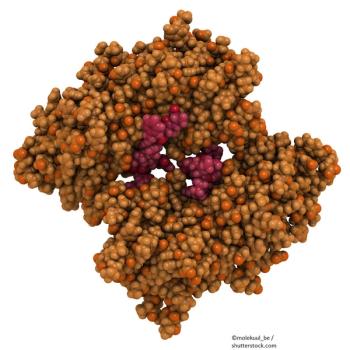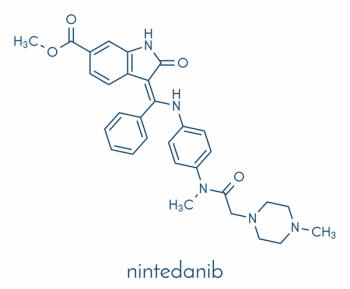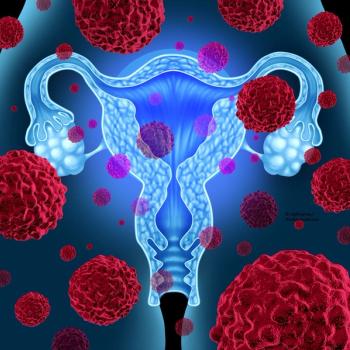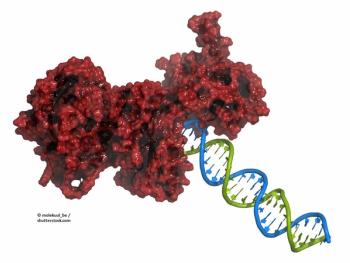
Adding PARP inhibitors to maintenance therapy was shown to prolong progression-free survival in patients with advanced ovarian cancer.

Your AI-Trained Oncology Knowledge Connection!


Adding PARP inhibitors to maintenance therapy was shown to prolong progression-free survival in patients with advanced ovarian cancer.

Maintenance therapy with niraparib may improve survival in patients with ovarian cancer.

The results of the first therapy to use a PARP inhibitor with chemotherapy for patients with ovarian cancer were presented at ESMO Congress 2019.

A new study looked at trametinib's effect on survival and response rates in ovarian cancer.

The AVANOVA2 trial enrolled a total of 97 patients with high-grade serous or endometrioid platinum-sensitive recurrent ovarian cancer.

More ovarian cancer patients were willing to accept riskier surgery in exchange for better chances of extending their overall survival, according to a new study.

How much do you know about the role of long non-coding RNAs in ovarian cancer? Now is your chance to find out.

ESR2 rs3020450 polymorphism was linked to ovarian cancer risk at a population level, while high ESR2 expression levels were associated with long survival in ovarian cancer patients.

A new phase 1a/b study examined a total of 49 patients with solid tumors, including 34 with ovarian, fallopian tube, or primary peritoneal cancer, treated with a combination of the PARP 1/2 inhibitor pamiparib and the anti-PD-1 monoclonal antibody tislelizumab in several dose escalation cohorts.

Using two validation methods, researchers found that a simple biomarker panel may have strong predictive ability for detecting ovarian cancer.

How much do you know about the epidemiology and prognosis of ovarian cancer? Here's your chance to find out.

A new study looked at the link between levels of lactobacilli species found in the cervicovaginal microbiome and the presence or risk of ovarian cancer.

Researchers examined the results of ribociclib and letrozole as a treatment for patients with estrogen receptor-positive ovarian cancer and endometrial cancer.

This review summarizes the major clinical trials that led to the approval of antiangiogenic drugs for ovarian cancer and gives a brief view into novel combinations of bevacizumab with other targeted therapies in an attempt to enhance the efficacy of bevacizumab.

The US Food and Drug Administration recently approved a new indication for olaparib for maintenance treatment in adult patients with germline or somatic BRCA-mutated advanced epithelial ovarian cancer.

How much do you know about predicting patient outcomes in ovarian cancer? Take our latest quiz to test your knowledge.

Long-term follow-up of a phase III trial showed overall survival results for bevacizumab plus chemotherapy in women with ovarian, fallopian tube, or primary peritoneal cancer.

A phase I/II trial tested the combination of niraparib and pembrolizumab in patients with recurrent ovarian carcinoma.

How much do you know about the link between various germline mutations and ovarian cancer? Take our latest quiz to test your knowledge.

An analysis of the phase III SOLO1 trial examined safety signals with olaparib maintenance therapy for women with newly diagnosed advanced ovarian cancer and a BRCA mutation.

A phase II trial showed that the addition of nintedanib to neoadjuvant chemotherapy did not benefit patients with advanced epithelial ovarian cancer.

Researchers analyzed recurrence and survival outcomes for clear cell ovarian carcinoma in the JGOG3017/GCIG trial.

Researchers tested maintenance therapy with rucaparib in a phase III trial of patients with recurrent epithelial ovarian cancer who experienced response to platinum-based chemotherapy.

This FDA confirmatory phase III study evaluated olaparib vs treatment of physician’s choice in BRCA-mutated, platinum-sensitive relapsed ovarian cancer.

Data from a phase II study were presented at ASCO 2019, focusing on responses among women with BRCA wild-type ovarian cancer to olaparib.